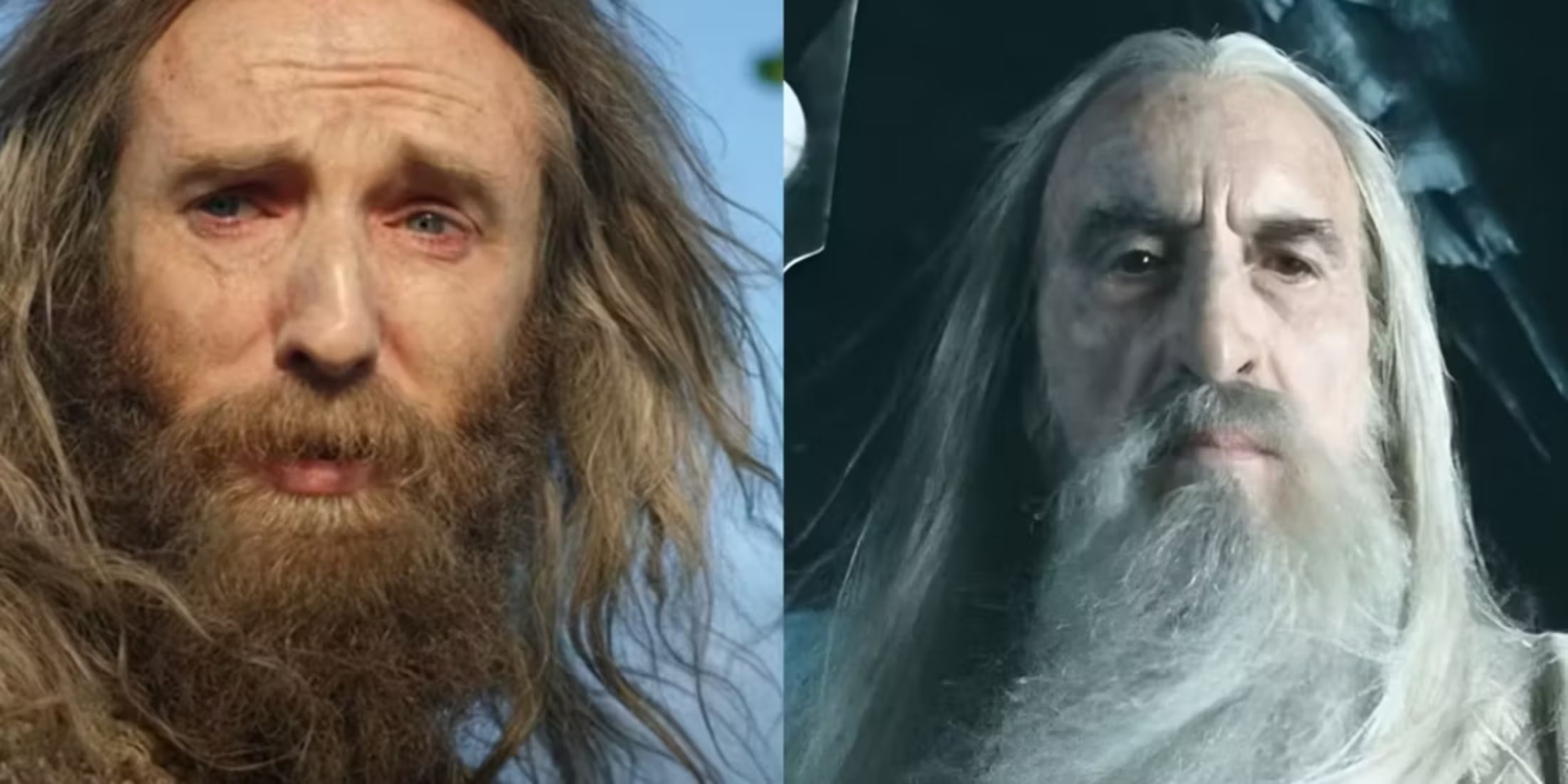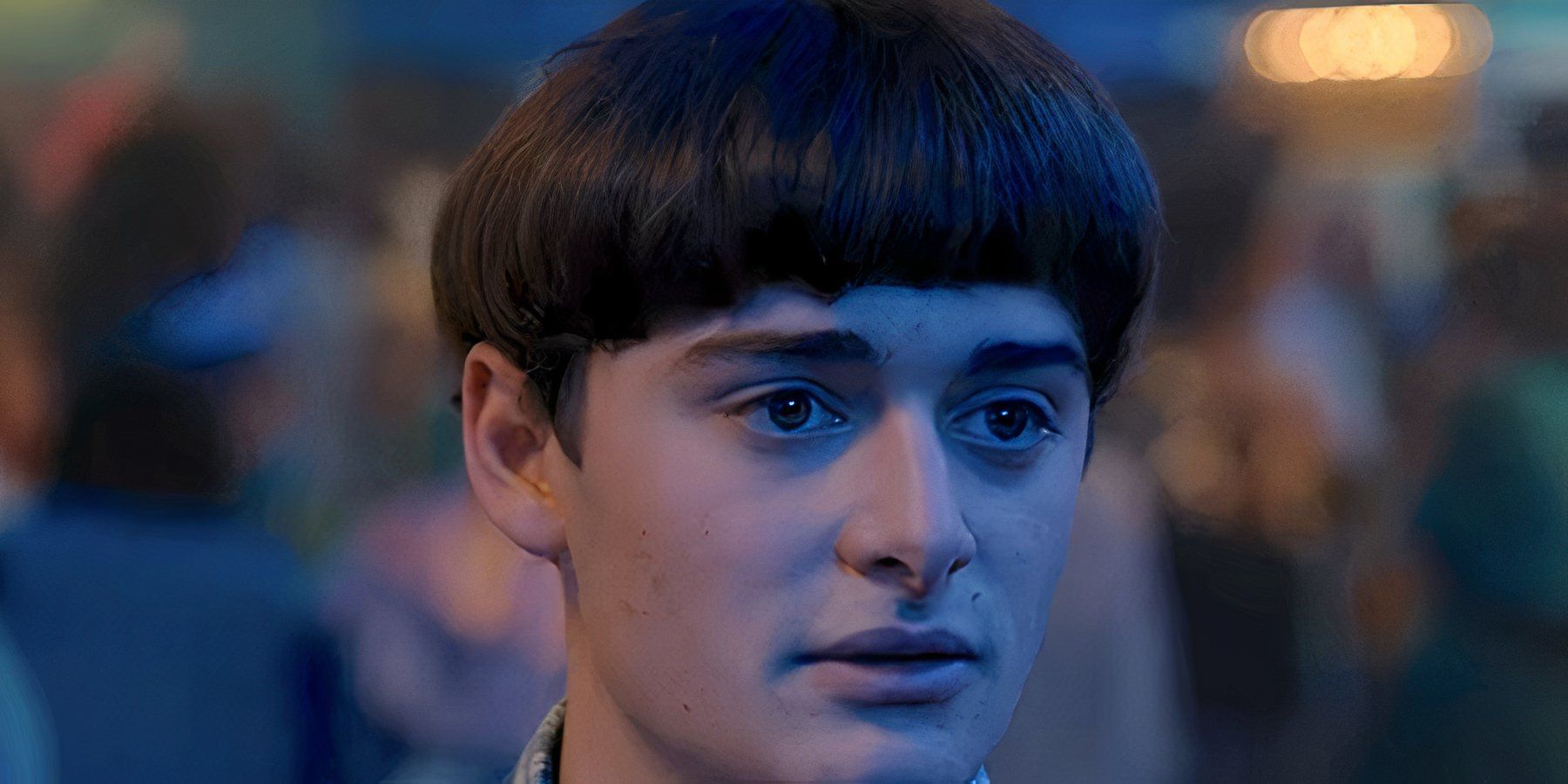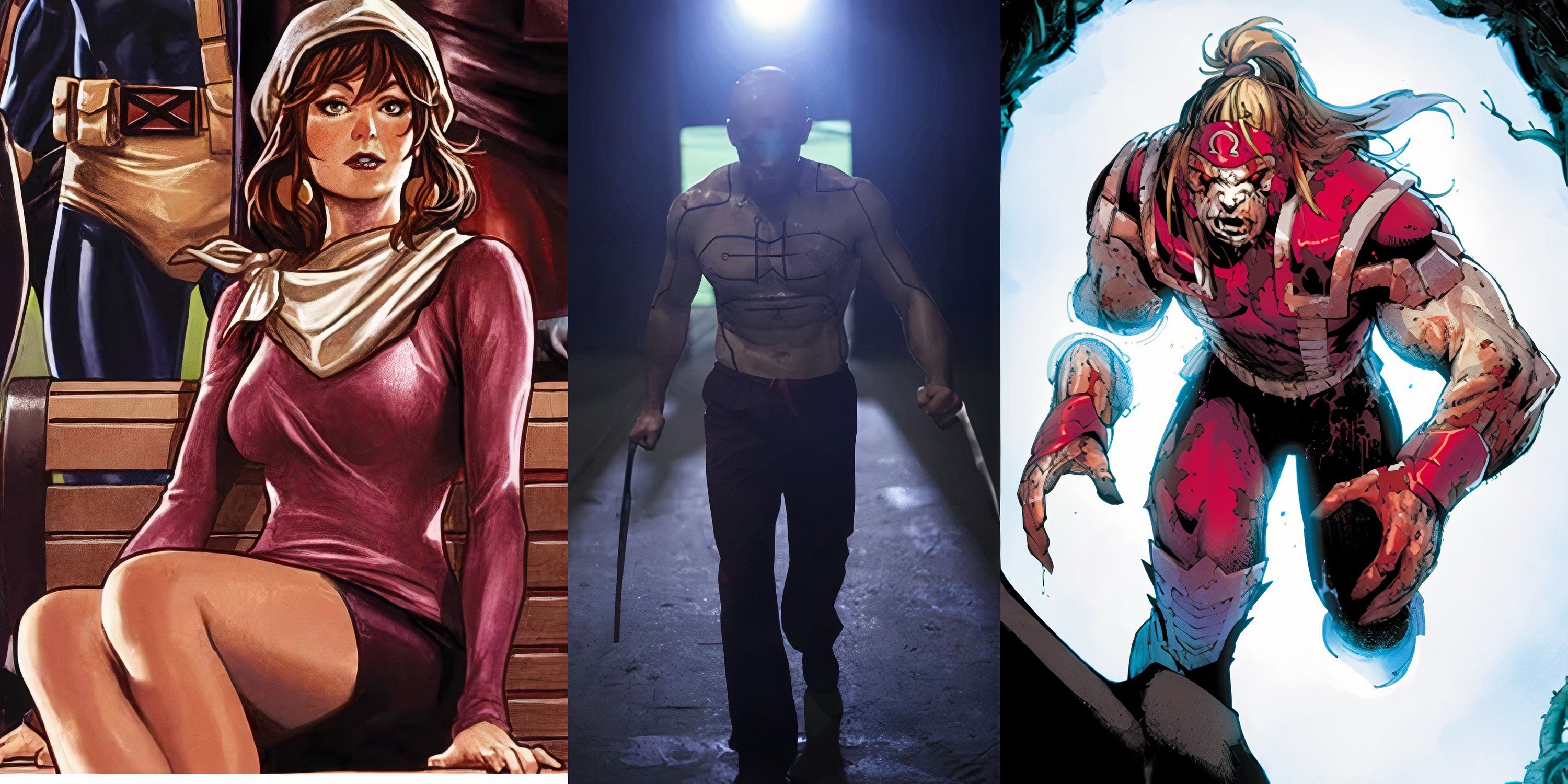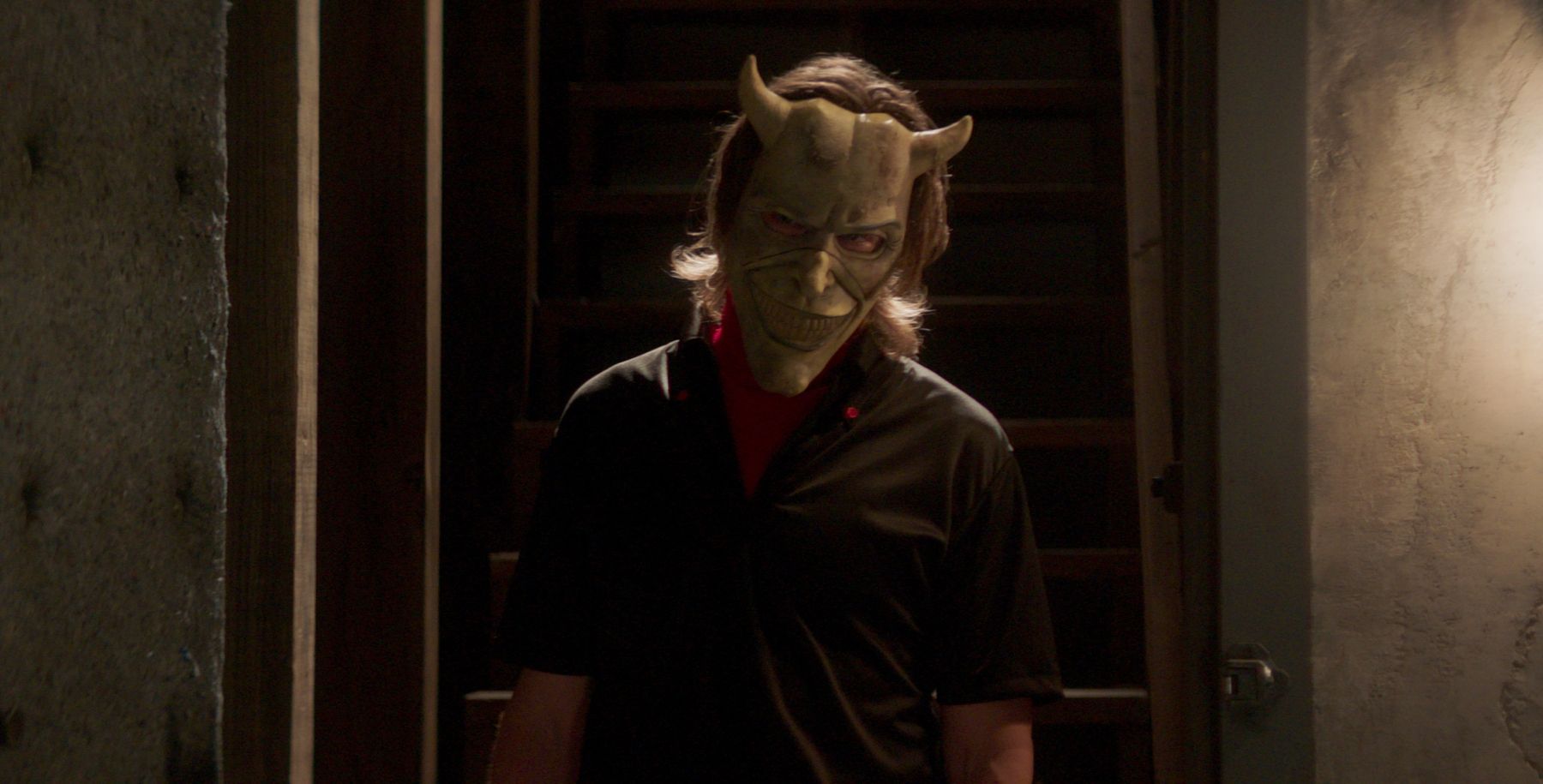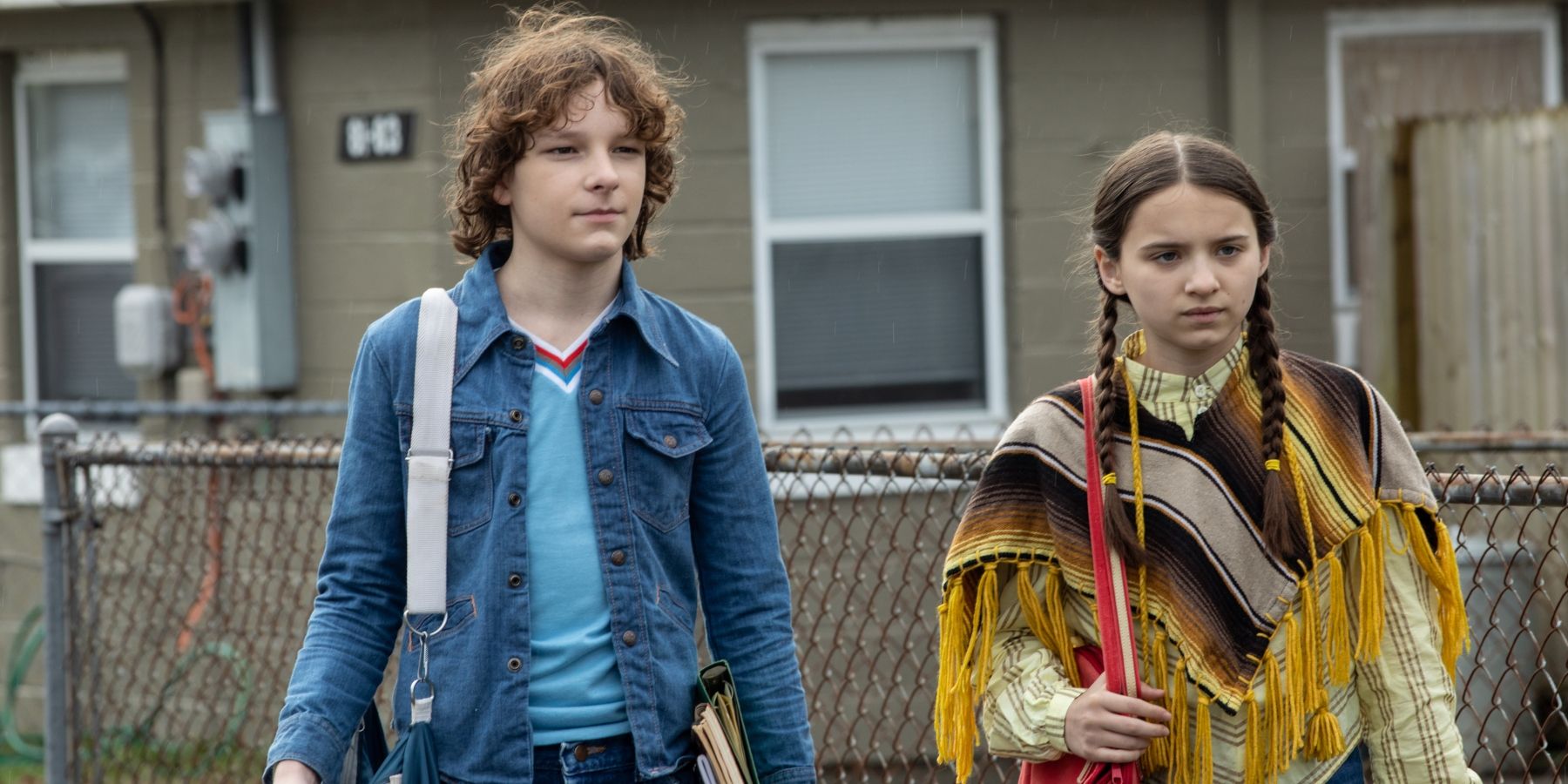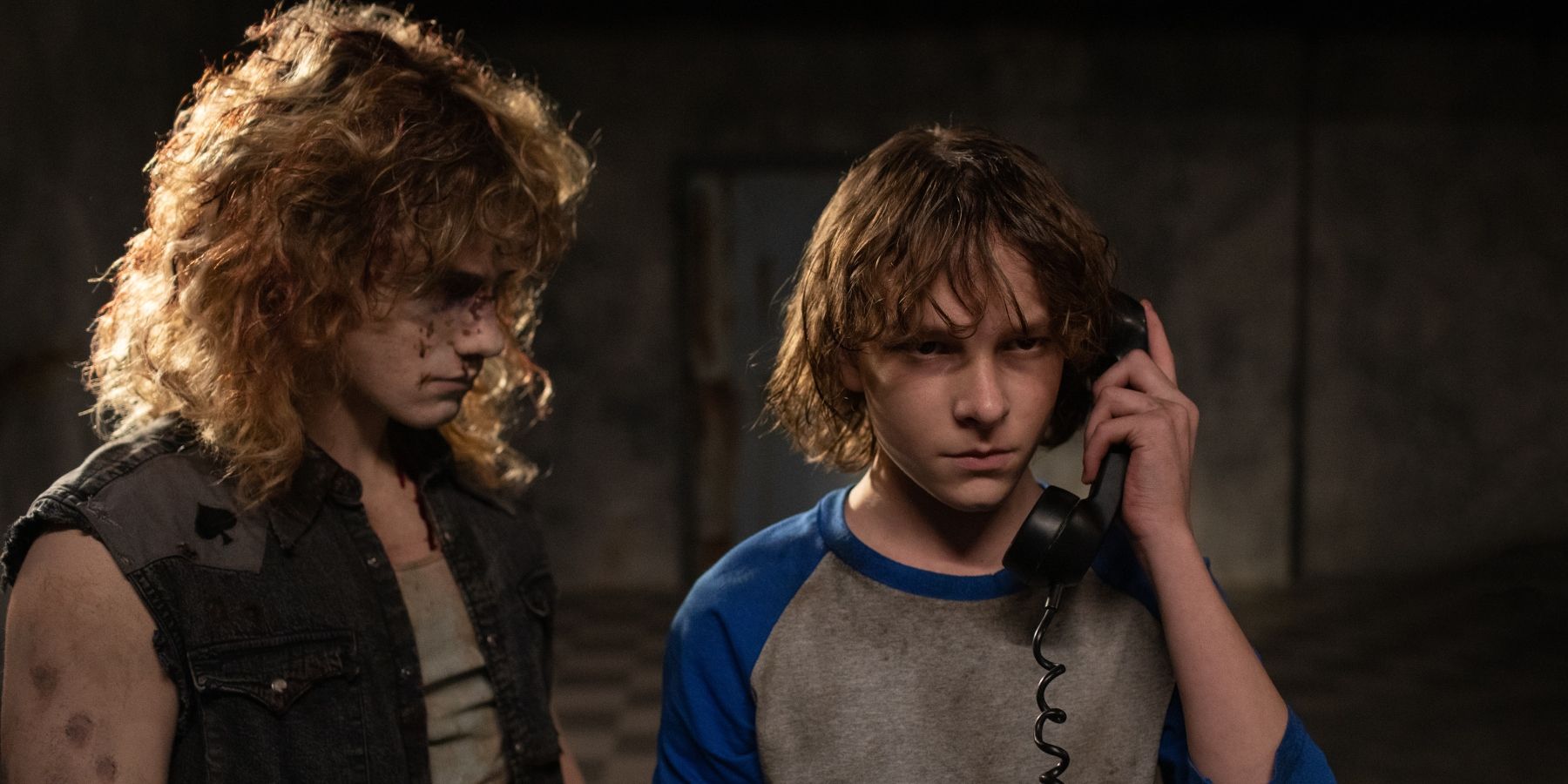The Black Phone is set in a 1970s landscape before the age of the internet, cellphones, or Amber Alerts. It takes place in a time when serial killers and kidnappings were excessive and difficult to solve due to fewer advancements. Director Scott Derrickson has mentioned in other interviews that he is not a nostalgic person. Where some see the past through rose-colored glasses, he has a less favorable viewpoint regarding the "good old days" as some would say.
One could see this as why he chose to adapt the short story of the same name by Joe Hill. The Black Phone thrives on its loneliness and disconnected setting in the age of feeling powerless against monsters lurking in the streets at night. Moreover, it's a horror story that surprisingly has an empowering spirit involving overcoming abuse and trauma.
The film centers on Finney Shaw (Mason Thames) a teenager who has a troublesome childhood. His father is an alcoholic with anger issues and abusive tendencies. One scene involving his sister Gwen (Madeleine McGraw) being punished will be triggering for some viewers. His mother passed away leaving both siblings with no one but their father (Jeremy Davies) to care for them. And at school, Finney is constantly bullied and beaten by fellow classmates.
Meanwhile, young boys in the neighborhood are disappearing, being abducted by a stranger the news has dubbed "The Grabber." To add to the strangeness of it all, Finney's little sister has visions of the kidnappings and knows details that only the police should know. This adds even more tension in the home when the cops begin pressing the unstable father to speak to Gwen.
All of this comes to a head as Finney himself comes face-to-face with The Grabber (Ethan Hawke) and is ripped from the streets in broad daylight. The story then throws itself into a mostly one-setting survival film when Finney is placed in a cemented basement with only one door to escape guarded by a creepy Ethan Hawke sporting an unsettling mask with horns and a devilishly wide smile.
The empowerment comes into play with the added supernatural element. Inside this basement prison is a black phone that keeps ringing despite being disconnected. And the person(s) on the other end are previous deceased victims of The Grabber assisting "Finney boy" in maneuvering a means to survive his malevolent kidnapper.
Hawke's portrayal of The Grabber will make one's skin crawl as he makes suggestive remarks to Finney that could be interpreted as perverted, violent, or both. His actual plans for Finney are never crystal clear but the ambiguous intent is more disturbing to the imagination. This is some of Hawke's best work giving a performance that although understated has dimension. Hawke demonstrates a man with self-disgust and disconnection from his immorality. Between this movie and Moon Knight, he continues to prove that he is an extremely underrated performer.
The child actors in this film are incredible as they mostly take center stage in The Black Phone. Mason Thames is the heart and soul of this film. He has the burden of selling the fear and carrying the weight of the movie for most of the runtime. Thames also has scenes that convey authentic vulnerability with the situation leaving him feeling hopeless and trapped. And while these scenes are heartbreaking, the performance communicates the stakes. It's impressive work for such a young talent. However, the show-stealer in The Black Phone is Madeleine McGraw. Her scenes range from devastating to surprisingly hysterical. The script requires her to have a hardened soul which is accompanied by a "no filter" attitude. Her dialogue is hilariously fierce and the performance is just as equal.
The script itself is one of the best adaptations of a Joe Hill story. It has essences of Stand by Me and one can see glimpses of The Sandlot or Radio Flyer here, movies that showed camaraderie among youth in overcoming fear. There are even sprinkles of influence from Wes Craven's The People Under the Stairs (an extremely underrated horror film.) That was another film depicting victimized youths fighting back against their tormentor.
The Black Phone is not without its issues. The film has a third-act surprise story reveal that requires some gymnastics in the suspension of disbelief department. It's a tiny nitpick in a sea of well-made decisions. However, that is about as much that can be said about this one setback without revealing spoilers.
The Black Phone is a tense, heartfelt, and decent throwback horror experience. Scott Derrickson's return to horror after tackling Doctor Strange is continuing proof he is a master in the genre. The Black Phone's direction (alongside C. Robert Cargill's script) is handled beautifully with immense suspense and rich themes of overcoming trauma and fear. It's a reminder that although the present may not seem as wonderful as the past, the lack of connection and access to information from the days before the internet had its pitfalls. The days when there were not as many cameras on street corners, and kidnapped children were harder to recover may not be as nostalgic as people think.
The Black Phone opens in theaters on June 24.
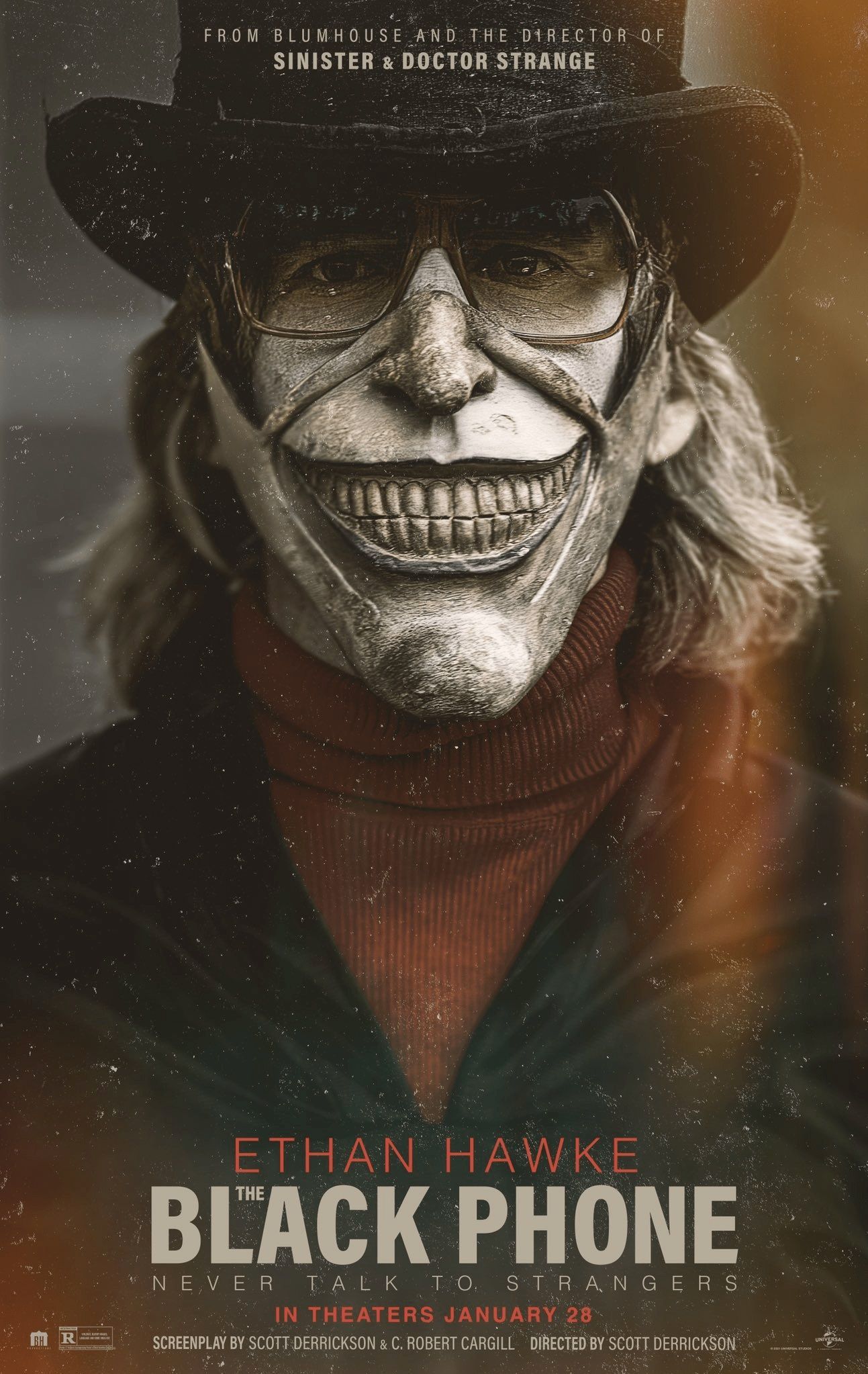
The Black Phone
Based on Joe Hill's short story of the same name, The Black Phone follows teen Finney Blake (Mason Thames) after he is abducted by a man known only as the Grabber (Ethan Hawke). Trapped in a basement with only a disconnected phone, Finney begins to hear from the Grabber's previous victims, each of which gives him cryptic clues to help him fight back against his captor.

